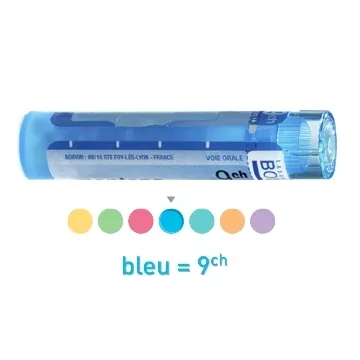

Enterocolitis is a serious medical condition requiring appropriate attention. By understanding the causes, symptoms and available treatments, individuals can better manage this condition and take effective preventive measures. As always, consulting a healthcare professional for an accurate diagnosis and personalized treatment plan is crucial.
What is enterocolitis?
Enterocolitis is an inflammation that can affect both the small intestine(enterocolitis) and the colon(colitis). This condition can be triggered by a variety of factors, including bacterial or viral infections, food allergies, or drug treatments. Symptoms vary according to the underlying cause, but often include abdominal pain, diarrhea, fever and a general feeling of malaise.
What are the main causes of enterocolitis?
The causes of enterocolitis can be multiple. The most common include:
Infections: Pathogens such as Salmonella, Escherichia coli (E. coli), and Rotavirus are frequently implicated.
Food allergies: Reactions to certain foods can cause inflammation of the intestine.
Drug treatment: Some drugs can induce enterocolitis as a side effect.
Inflammatory bowel diseases: Conditions such as Crohn's disease and ulcerative colitis may also be involved.
How is enterocolitis diagnosed?
Diagnosis of enterocolitis is based on a combination of tests. A full medical history and physical examination are the first steps. Additional tests, such as blood tests, stool cultures, and sometimes colonoscopy or endoscopy, may be necessary to identify the precise cause and determine the most appropriate treatment.
What treatments are available for enterocolitis?
Treatment for enterocolitis varies according to the cause. In the case of infectious enterocolitis, antibiotics or antivirals may be prescribed. For allergic reactions, elimination of the food allergen is essential. Treatment may also include supportive measures, such as rehydration, especially if diarrhea is severe. In some cases, anti-inflammatory drugs are required to reduce intestinal inflammation.
Can enterocolitis be prevented?
Although not all forms ofenterocolitis are preventable, certain measures can reduce the risk of developing this condition:
Food hygiene: Washing hands and food thoroughly can prevent infection.
Avoiding known food allergens: For those with food allergies.
Caution with medications: Be aware of medication side effects and consult a healthcare professional if necessary.
Is enterocolitis contagious?
Enterocolitis can be contagious when caused by bacterial, viral or parasitic infections. The pathogens responsible for intestinal inflammation can be transmitted from one person to another through contaminated food or water, or directly by contact. Good hygiene practices are essential to limit the spread of these infections.
What are the warning signs of severe enterocolitis?
Severe enterocolitis can manifest itself through symptoms such as severe abdominal pain, bloody diarrhea, marked dehydration, high fever or unexplained weight loss. In the face of these signs, it's crucial to consult a health professional immediately for appropriate treatment.
Are children more at risk of developing enterocolitis?
Yes, children, especially infants and young children, are more likely to develop enterocolitis due to their less mature immune systems. Viral infections, such as rotavirus, are frequent causes of enterocolitis in children. Vaccination and rigorous hygiene are key preventive measures for this age group.
Is it possible to follow a specific diet to help heal enterocolitis?
An appropriate diet can help relieve the symptoms of enterocolitis and promote healing. A light diet rich in clear liquids and easily digestible foods such as rice, bananas and cooked apples is generally recommended. It is important to avoid spicy, fatty or highly fibrous foods, which could aggravate symptoms. Medical advice can guide the choice of the most appropriate foods.
Are there any natural remedies for enterocolitis?
Some natural remedies can help relieve the symptoms of enterocolitis, such as probiotics (yoghurts, food supplements) to restore intestinal flora, or chamomile tea for its anti-inflammatory effects. However, it is important to note that these remedies do not replace appropriate medical treatment, especially in cases of severe enterocolitis. Consulting a healthcare professional is essential for proper management.